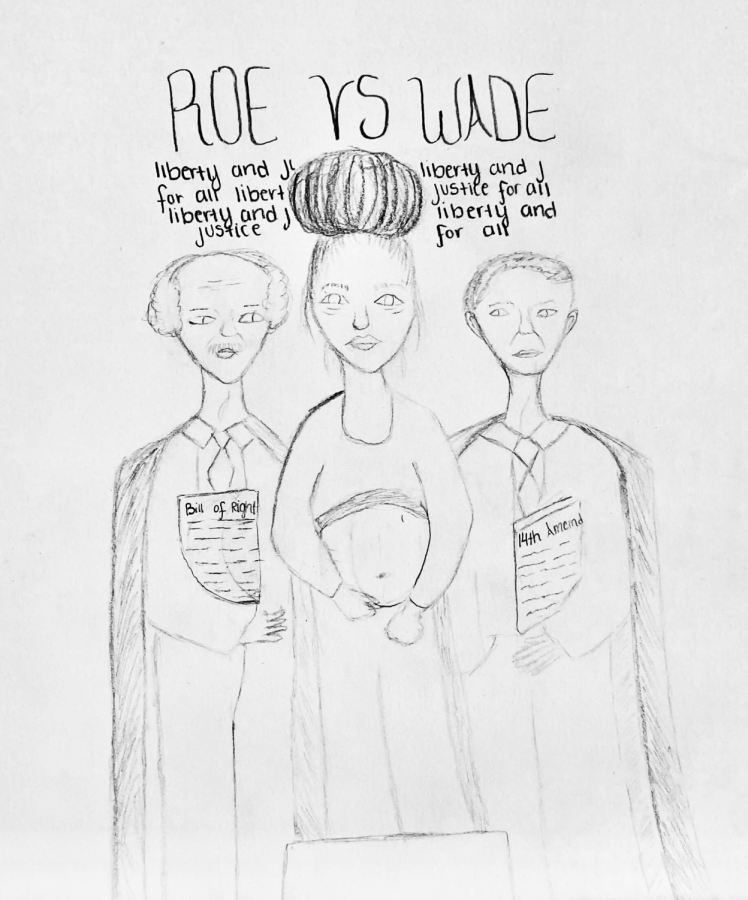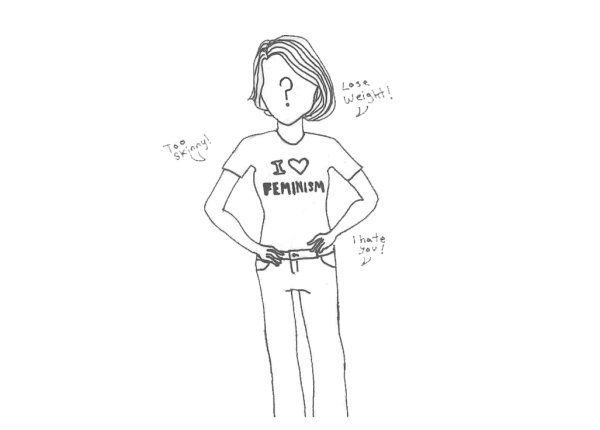Roe v. Wade’s overturning causes continuous problems
The infamous Supreme Court Case Roe v. Wade being overturned has caused a major setback for not only birthing people, Ezra Riemermann writes, but for the entire country.
This week, five states voted to restrict abortion access, but the fight for reproductive rights has been going on for decades.
On December 13, 1971, the Supreme Court initiated the infamous case Roe v. Wade. The event would go on to be used as legal clarification that it was unconstitutional for any state within the United States of America (USA) to pass any law or legal ruling that in any sense illegalized abortion. By virtue of this decision, Roe Vs. Wade has become cultural shorthand for the idea of abortion being deemed a constitutional right within the United States (U.S.).
A cultural uproar has thus followed the current Supreme Court’s overturning, but what are the consequences? There are currently eleven states in which it is across-the-board illegal to obtain an abortion: Arkansas, Alabama, Kentucky, Idaho, Mississippi, Louisiana, North Dakota, Missouri, Oklahoma, South Dakota, Texas, Tennessee and Wisconsin. Adding up these states’ populations, a total of 76,217,923 Americans are affected by this event. Out of those people, roughly half of the population can give birth. Thusly, 38,108,961.5 people are affected by this. That’s over thirty-eight million people who could potentially have their access to an abortion restricted.
For quite some time, the goals of the Republican Party, of which former President Trump (who confirmed the justices that ultimately championed and led the overturning) is a member, have been to undermine and hinder Civil Rights in many areas — not just reproductive rights. In the modern day, the main manifestation of Civil Rights and strivance for equality has been colloquially known as “Political Correctness”. The manifestation of this has often varied: from tangible attempts to ban the teaching of oppression throughout the U.S.in the form of the banning of Critical Race Theory (CRT), or in more subtle fashions, like the recent cultural trend of the objection to/criticism of “Cancel Culture”. However, for the most part, American conservatives have been relatively unable to cause significant lasting change in a tangible, governmental fashion. The overturning of Roe v. Wade breaks their previous trend of little or no tangible governmental change. This, then, isn’t just about the illegalization of abortion. Roe v. Wade effectively removed a constitutional protection, implying that other constitutional protections (same-sex marriage, for instance) could be banned too.
Among the socio-political left (supporters of and/or identifiers with Political Correctness and Civil Rights, or frequently, Democrats), there are several sentiments regarding the overturning— something of a metaphorical ice cream shop with 98 different flavors of objection. Most common among folks of this persuasion is the stance that the attempts at illegalizing abortion, but rather an attack on the personal rights of already marginalized groups — in this case, namely, women. This ties into the general stance that the socio-political right (or the Republican Party) is less devoted to the suppression of toxic or societally regressive approaches to progressivism, inclusion and Civil Rights, but that rather the vast majority of people of this persuasion just use such a sentiment to justify or hide the intention of undermining relatively left-leaning views in the US (Namely, civil rights.)
It is challenging for many to overstate the outrage at this decision. Paired with the ongoing banning of Critical Race Theory (CRT), which has become a catch-all term for any teaching of texts or history through a lens of racial equity, in schools through various states, this is indicative of future trends of a greater and more direct approach to the legal banning of cultural attempts at progress in society. In other words, this could be a sign of a future trend of laws being changed, passed, or rewritten to more reflect Republican values by individual states following further Supreme Court interference with constitutional rights. This is a targeted attack on birth-giver rights standing tall.
The overturning of Roe v. Wade on its own is not a monumental event in the history of politics. In the same absurd sense, the legalization of manslaughter wouldn’t immediately result in fewer safety precautions within factories. These things take time, and the long-term implications are challenging to fully comprehend and dissect. In many ways, only time will tell if this is the beginning of a trend, the breaking of a pre-established one, neither or both.
However, one thing is very clear. This is the Republican Party breaking a long-standing trend and undoubtedly opening the door to several other changes. The potential bearing this could have on the future is challenging to overstate.

Ezra Riemermann is a senior at CHHS and a first-year Opinion Editor for The Heights Herald. He is a devoted political mind with a pension for heated...

Naomi Gbor is a senior at CHHS. She values free-expression, nature and camaraderie. Her hope is to help keep journalism alive in a social-media-based society.







